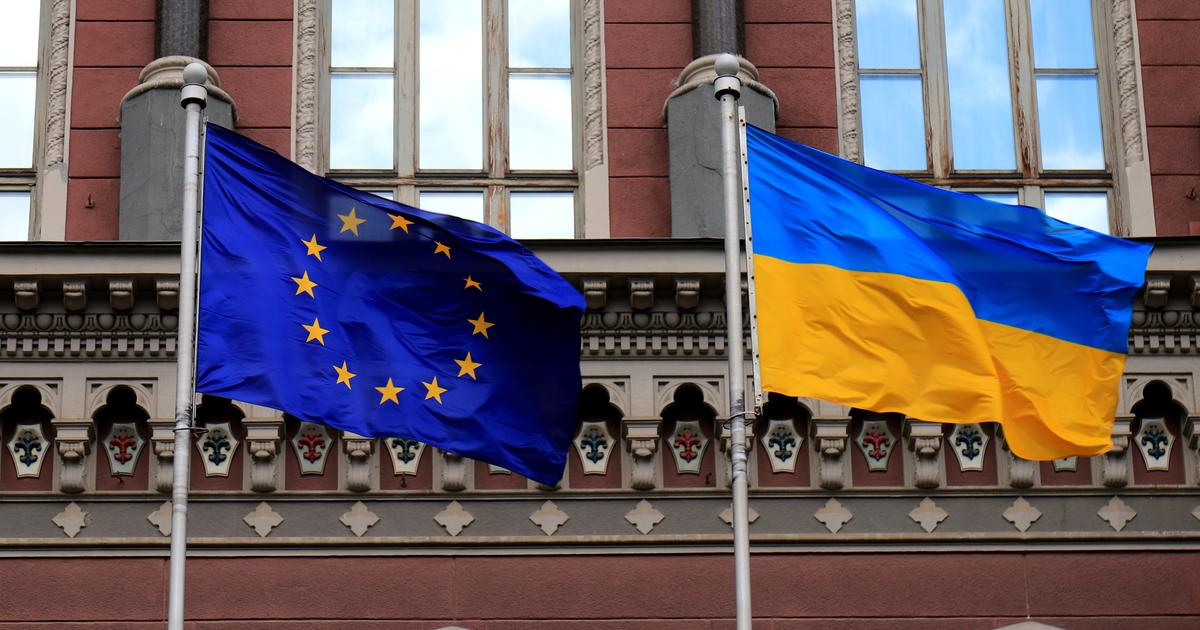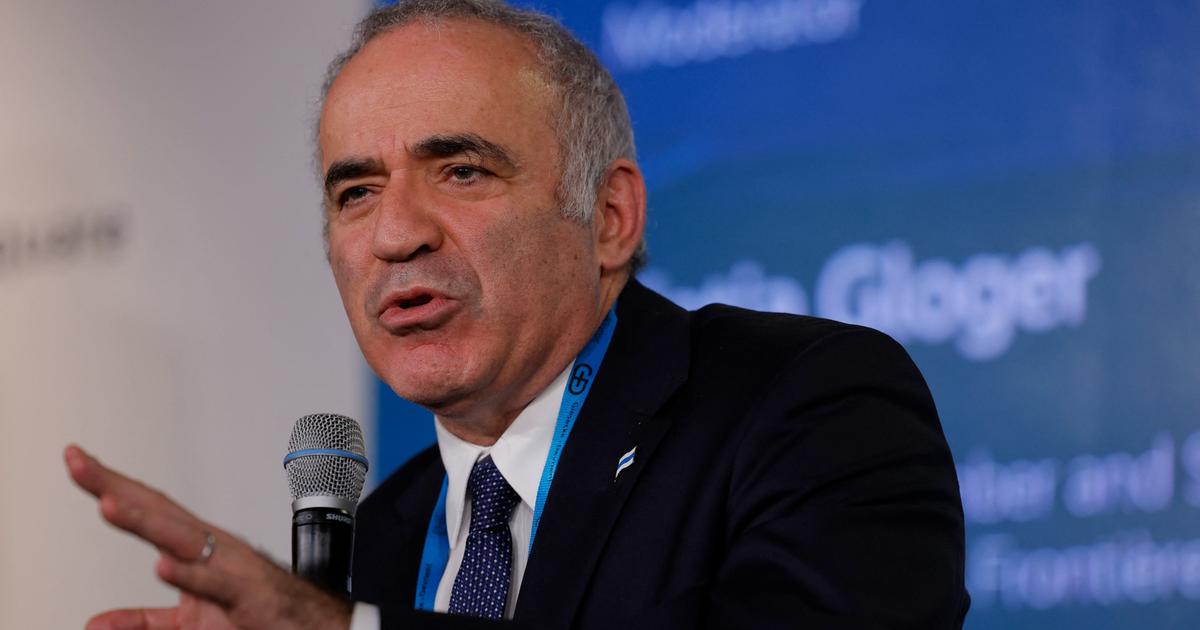The chorus of voices in Russia demanding the establishment of USSR 2.0 already includes the country's leading economists and mathematicians.
In an interview granted to the state agency RIA Novosti to commemorate the centenary of the creation of the Soviet Union, on December 30, 1922, Ruslan Grinberg called for a return to the planned economy.
It would be easy to dismiss that call as nothing more than a delusional proposition if it weren't for the platform from which it was launched and the position of whoever launched it.
Grinberg, director of the Russian Academy of Sciences (RAN) Institute of Economics, took pains to stress that what he was referring to was not a war economy focused on military needs, but "a planned economy, not it is directional, but indicative.
The crux of the matter is that the State must begin by formulating economic priorities.
And then it should not force the industry to produce a certain amount of goods at a given time, but stimulate production through subsidies and fiscal and customs policies.
Although Grinberg's suggestion tried to maintain the balance between a market economy and a planned economy, the director of the Central Institute of Mathematics of the RAN, Albert Bakhtizin, has dared to go further a few days ago.
The concept of "indicative planning" proposed by Bakhtizin considers it necessary to return to the five-year economic plans (
pyatiletka
), "a kind of strategic planning with a clear definition of the objectives and a system of indicators that would specifically calculate what and when to produce and what is needed for it”.
Grinberg and Bakhtizin's proposals may appear to be signs of desperation in the face of international boycotts and successive packages of economic sanctions.
But that is only part of the question.
The other part is the total ideological, political and economic repeal of the reforms initiated by Mikhail Gorbachev before the fall of the Soviet Union and continued, in a different style, in Yeltsin's Russia during the 1990s.
It is not surprising that these ideological, social and political regressions culminate in a return to the Soviet economy.
After all, the bureaucratic, inefficient, and ultimately unviable nature of an economy unable to meet basic needs was one of the main reasons the system collapsed.
But I would like to suggest another reason why these proposals to abandon the market economy are now appearing.
The Russian invasion of the Ukraine, on February 24, 2022, signaled what I called “the implosion of history” and upended the chronological order of time.
As unlikely as it may seem, in that single event different time lines converged: “The line of the Soviet collapse 30 years ago;
that of the Chernobyl catastrophe 36 years ago, which points to an indefinite future of environmental contamination;
that of the two world wars;
that of the Ukrainian genocide, and the Stalinist repressions of the thirties…”.
However, the implosion of history does not just create chaos in the chronology;
it is comparable to the mirror that Alice goes through when entering the alternate reality of Lewis Carroll's novel.
The alternate reality, related to the war that Russia is waging in the Ukraine, is reflected in the language.
Therefore, in Putin's verbiage, a war is not a war, but a special military operation (OME), although he himself recently allowed himself to use the forbidden word.
Or, as the latest joke in Russia goes, the Russian army does not retreat, but undertakes "negative counter-advances."
In addition, the alternative reality is not only reflected in the language, but also in the public perception and the mutations of the political regime.
Because, although Putin has been in power for 22 years, either as president or as prime minister, his regime has not remained static.
Following the slightly pro-Western stance of his first two terms, Putinism took on characteristics of the Soviet "era of stagnation," which spanned the governments of Leonid Brezhnev (1964-1982), Yuri Andropov (1982-1984), and Konstantin Chernenko (1984- 1985).
The lightning invasions and occupations of Georgia in 2008 and Ukraine in 2014, which led to Russia's annexation of Crimea, helped revitalize a listless and decaying Russia.
With the full-scale invasion of Ukraine, the internal purges of Russian society reached their apogee: the last remaining independent media outlets were shut down, “foreign agent” laws were tightened, applicable to any public figure critical of the regime , and Putin endorsed the “self-cleansing” of Russian society and issued harsh warnings to pro-Western Russian “traitors”.
The quasi-Stalinist phase of the mutation had begun.
All of which brings us to the current proposals to reinstate a centrally planned economy.
Although the original
pyatiletkas
were introduced at the beginning of the Stalinist era (i.e., before the purges), they were a transitional phase from Lenin's New Economic Policy (NEP), which allowed some scope for independent initiative and freedom for farmers and small private companies.
In other words, through the looking glass of the Ukrainian war we are seeing Soviet history not repeating itself but rewinding and replaying at full speed within Russia itself.
The logical result of the adoption of a planned economy is precisely what the great break between Lenin's NEP and Stalin's five-year plans entailed, that is, a massive expropriation.
After the bloody collectivization processes that took place in the Soviet Union between 1929 and 1933, after the “shock therapy” of privatization in the early 1990s that created the Russian oligarchy, now it is about to begin in Russia a new violent wave of property redistribution.
For now, the violence is directed abroad, with the destruction of energy facilities, civil infrastructure and thousands of innocent lives in Ukraine.
(The Russian Parliament—the Duma—has just passed a law granting Russian soldiers immunity for crimes committed in Ukraine and legalizing stolen goods and property as “gift transfers” by the Ukrainian population.)
But, given the rapidity of the reversal of historical repetition in Russia, it is not long before violent appropriations begin to take place at home as well.
If we read between the lines the message transmitted by economists and mathematicians like Grinberg and Bakhtizin, we can glimpse the old specters of expropriation.
And, perhaps, even leaning over the precipice of a true civil war.
It is not long before violent appropriations begin to take place in the interior as well.
If we read between the lines the message transmitted by economists and mathematicians like Grinberg and Bakhtizin, we can glimpse the old specters of expropriation.
And, perhaps, even leaning over the precipice of a true civil war.
It is not long before violent appropriations begin to take place in the interior as well.
If we read between the lines the message transmitted by economists and mathematicians like Grinberg and Bakhtizin, we can glimpse the old specters of expropriation.
And, perhaps, even leaning over the precipice of a true civil war.
Translation by María Luisa Rodríguez Tapia.
Michael Marder
(Moscow, 1980) is a philosopher and Ikerbasque research professor (Basque Foundation for Science and the University of the Basque Country).
His latest book is
Passenger Philosophy
(NED).
Subscribe here
to the weekly newsletter of Ideas.





/cloudfront-eu-central-1.images.arcpublishing.com/prisa/P7R2LVZ4KNEABCSKQ4KCDGKWMU.jpg)









